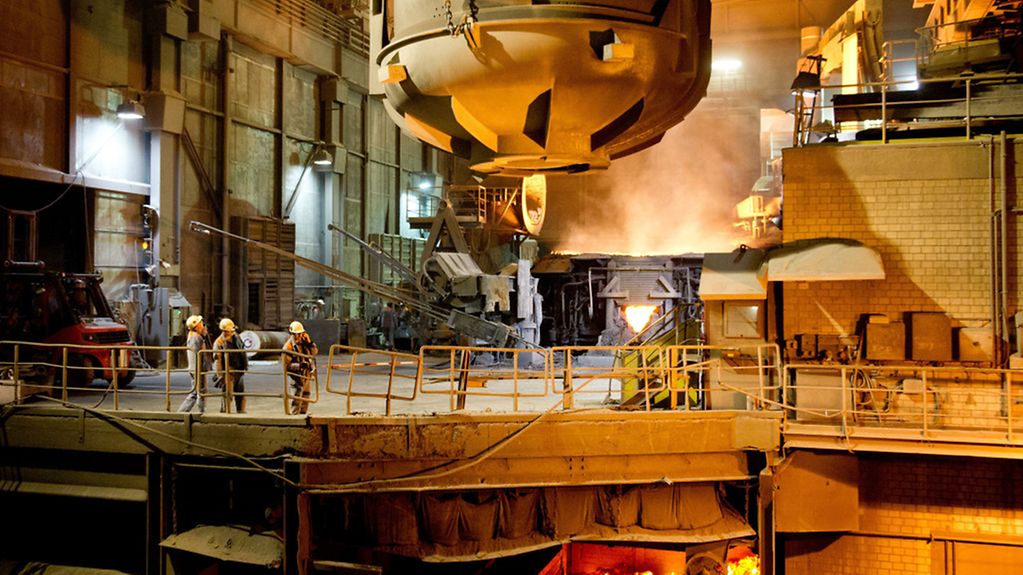Trade conflict with USA
Europe will initially wait for the final decisions of the US government in the trade conflict. "If tariffs are imposed on the European Union," reported Chancellor Angela Merkel, "we will respond with counter-measures. That is our common response."
2 min reading time

The conflict over punitive tariffs is unrolling against the backdrop of global overproduction of steel and aluminium
Photo: picture-alliance/dpa/Kahnert
In Brussels the heads of state and government discussed international trade relations and agreed on a joint course of action. Angela Merkel gave her assurance that the EU would also continue to seek dialogue. Firstly, however, it would wait for the final decisions of the US government. American President Donald Trump had announced earlier that the EU would be exempted from the punitive tariffs planned on imports of steel and aluminium.
Further talks
At the meeting of the European Council, EU member states took a joint stance against the planned US tariffs on steel and aluminium. Chancellor Angela Merkel praised this solidarity. "We would like to see good transatlantic relations, but if necessary we will respond if we see any violation of international trading regulations," she stressed.
"We believe that it was right for the European Union to seek dialogue," underscored Angela Merkel. "Because we believe that these tariffs are not justified." The European Commissioner for Trade Cecilia Malmström and Federal Minister for Economic Affairs Peter Altmaier have been engaged in intensive negotiations with American partners over the last few days. These talks, said Angela Merkel, have played an important role. Europe has presented a united front and affirmed its commitment to free trade and its rejection of protectionism.
Working together to address overcapacity
The background to the conflict over punitive tariffs is the worldwide overproduction of steel and aluminium. Steel production alone has risen by 127 per cent since 2000, whereas the rise in demand has not kept pace. Cheap steel from Asian countries, in particular, is flooding the world market, creating over-capacity.
The surplus supply on the market has pushed prices down dramatically. European states too are struggling to cope with the increasing supply of steel on the world market, which is having a major adverse impact on the economic situation of the steel industry in Germany and elsewhere in Europe. The German government is thus working to put in place a level playing field around the world and to eradicate existing imbalances.
The Global Forum on Steel Excess Capacity was founded in 2016 following a resolution of the G20 leaders. In dialogue, it aims to find common solutions for the steel industry and to redress the situation on global steel markets. Under Germany’s G20 Presidency, the Forum made good progress and agreed on principles for enhanced transparency and cooperation.